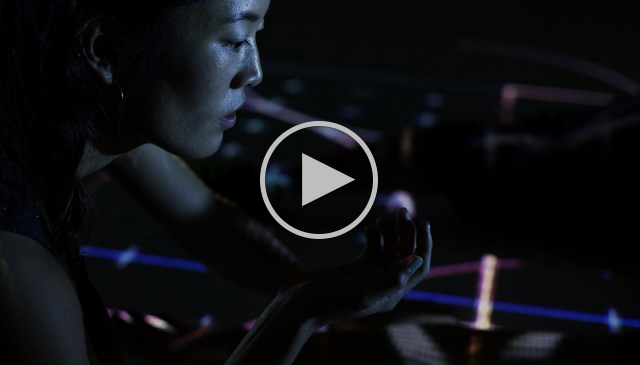5th IDOCDE Symposium on Contemporary Dance Education
July 28 - 30, 2017 at ImPulsTanz Vienna International Dance Festival
why compromise. mind the dance.
promoting actions and creative visions in a precarious world
Informed by the developments in the world of socio-politics – and the cultural attention that goes along with it – we at the IDOCDE headquarters decided it was time to frame our annual Call for Proposals as a Call for Action. This decision is to address the theme of the 5th IDOCDE Symposium.
The theme of the 5th IDOCDE Symposium – why compromise. mind the dance – is different from the previous themes in that it does not only ask you – the dance educator, artist, student, cultural worker, and the participant in the making of The World – to look inwards and reflect on your developing practice, share your reflections and by doing so enrich the experience of others. The aim of this year’s Symposium is also to ask you to add an outward-looking reflection whilst asking the question: what is my practice actually doing to the world – given my experience of managing personal pedagogic and artistic practices? How are my pedagogic and artistic decisions shaping the world of others – my students? My peers? And what, in particular, is the effect of the decisions I am not making?
(The time for mulling around is up.)
Assuming that compromise is somewhat a part of everyone's daily life, we ask: What do you actually do when you compromise? What are the reasons for which you compromise? And how long do you think it will be possible for you to continue that practice?
We are not interested in asking you to imagine a world without compromise. This is not a utopian exercise. What we are inviting you to is, thinking thoroughly about compromise. And consider what kind of world your practice is creating. What kind of institutions, what kind of organisations, what kind of ecosystems, what kind of politics, what kind of families.
Instead of stepping into the trap of ‘judge-mentality’, we would like to ask you to join us, think together with us; to pose sincere, straightforward, and challenging questions. In short, we would like to ask you to approach this Symposium with the clarity of body-mind you may have never dared to engage with before in a public space, and by doing things you may have never dared to do before in a public space. In other words, we would like to ask you to approach this challenge – ‘as a human being’, an experienced participant in an alliance of individuals, artists and educators.
We hope this call is inspiring and exciting; resonating with your priorities, with your practices, with your interests, and with your passions for dancing – if so send your proposal today! And help us bring about a Symposium that will not only enrich, but that will also move – move participants to action. Help inspire, inform, and support our community by exposing your experiences: Your physical practices, your pedagogic practices, your theoretical practices, your artistic practices. Your public thoughts, your intimate thoughts, your affirmative thoughts, your challenging and critical thoughts.
Help encourage the community by joining this alliance. Participate at the 5th IDOCDE Symposium on contemporary dance education and so – help make a difference!
Proposal for “why compromise. mind the dance.” and their formats* may include the following, but are not limited to these:
Emerging practices in the oscillation between art-making and education
Examples you find within you or around you, or in other landscapes beyond dance as a response-ability to the world around you
Movement(s)
Philosophy in and of dance
Political actions
Historical context(s)
Proposals that address the how we are being with each other right now right here
Scores
Workshops
Classes
Lectures
Installations
Performative actions
Hang outs
Site-responsive
Mediated spaces (virtually and non-virtually)
*We invite you to challenge (or not) the ‘usual’, the ‘conventional’, the ‘traditional’ formats of public presentations and sharings, teachings by staging your sessions in a way that aligns the staging to your thinking and ‘the doing of your thinking’. In other words, we invite you to think ‘outside the box’. This might be the opportunity for some to question or problematize the assumed role language has in enabling communication. What of your thinking would best be communicated in words, and what of your thinking would best be communicated in experience, performance, movement, action, etc?
IDOCDE invites contemporary dance practitioners, dance and movement educators, researchers, theoreticians and other practitioners contributing to this field
to submit proposals for the 5th IDOCDE Symposium!
All practical or theoretical proposals centered on aspects of teaching, researching or practicing dance, in relation to the proposed theme, are being considered.
Formats might range from teaching a class and sharing reflections, hosting a lecture demonstration, talk or discussion, to more uncommon or experimental formats, or anything in between.
Propositions of a length up to 2 hours (ideally 90 minutes, longer or durational propositions will be considered whenever possible), individual and team proposals from teachers all over the world and the IDOCDE community are warmly welcome.
Please fill in the PROPOSAL FORM by creating a new idoc under your profile and add it into the Symposium Folder before February 15th, 2017.
Your Symposium and REFLEX project team:
Defne Erdur, Eszter Gál, Pavle Heidler, Kerstin Kussmaul, Lieve de Pourcq, Martin Streit
The IDOCDE symposium is part of the EU program REFLEX EUROPE.
REFLEX researches and uses documentation as a tool for reflection in order to improve the teaching and to increase the impact on the learners in contemporary dance.
For further details head over to http://idocde.net/pages/122




